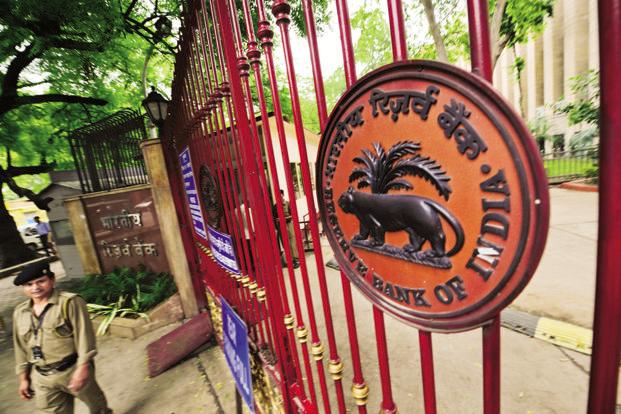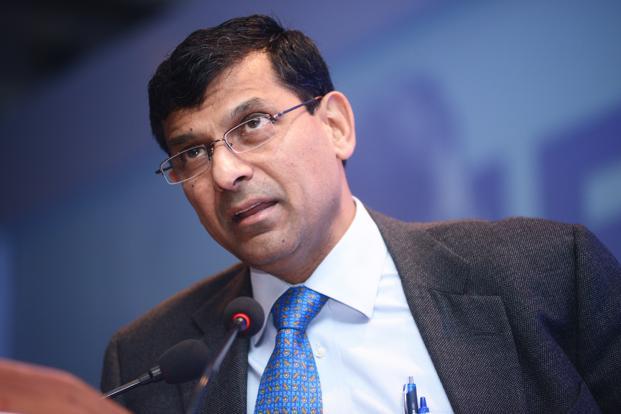Mumbai: Bimal Jalan, former governor of the Reserve Bank of India (RBI), says, “Whatever option you finally choose and what you feel should be done, must be done irrespective of its popularity and you have to succeed.” Jalan says that if indeed curbing inflation is the top priority of the central bank, then it should go all out to fight it.
In an interview, among other things, Jalan also discusses RBI’s intervention policy in the foreign exchange market during the East Asian crisis—don’t set a target; shock the market; and catch the players unawares. Edited excerpts:
In November 1997 you took over as RBI governor in the thick of East Asian crisis when the rupee was falling everyday. You must have spent about $3 billion those days to stem the fall of the rupee.
I don’t remember the exact amount but I do remember the great problem that I faced when I joined the RBI which was unanticipated. We didn’t think the impact of it would be so deep in Asia and the contagion effect across the border. It was a very difficult period.
How did you arrest the fall? Incidentally, the rupee has fallen at least 11% in the past two months.
They are two completely different situations. We must remember this because the impact of the East Asian crisis was such that it was self-feeding. In the foreign currency market, expectations are self-feeding. If you expect depreciation to happen and if you watch some players thinking that rupee is going to depreciate, then you can be sure that it will depreciate and this is across the universe now, as you can see.
The most important part is that there was no written text which would say what to do. It was a learning experience and a very difficult one because, one, we had to make the rupee flexible but we could not lose foreign exchange to the extent that would deplete our reserves to a point where confidence in India’s ability to intervene vanishes. The second issue was that the expectation in the market and turbulence in the market were unprecedented.
It was difficult as when people think that you are going to try and protect a targeted exchange rate, be it 40, 45 or whatever, then they would all try and hold dollars, rather than rupees, until it reaches that target.
You also raised banks’ cash reserve ratio and policy rate by 2 percentage points each.
Yes. I think the most important thing was that there was complete harmony between the government and the RBI.
Which doesn’t exist now?
No, it exists; without that you can’t handle crisis of that magnitude. Second, we did not have a fixed target for rupee. I think, India was the first country at that point of time which did not go by any established orthodox mantra or principle say, the IMF (International Monetary Fund) principle that you could be either fully flexible or fully fixed. If you are fully flexible and people are buying dollars, then the rupee is expected to depreciate and so on and so forth.
How did you break the back of that expectations?
We used to watch it everyday; we used to get feedback from all major banks on what was happening and we were also in touch with those abroad, the IMF, BIS (Bank of International Settlement)…There was a very close monitoring. One important principle was that we would never intervene at a round number.
For instance, if the rupee drops to 38 they are all speculating – the market plus the media – that the RBI would now intervene. Similarly, if it’s going to touch 40, then you would start expecting that we will intervene.
It has to be an unexpected, surprise intervention. It is a perfectly rational exercise on the part of buyers that if you expect the rupee to depreciate or the euro to depreciate, your overnight position would always be to hold more of some other currency. Our policy was to be flexible but managed and there was no target. You may remember, when we allowed the rupee to depreciate, we still had the capacity to intervene.
The most important lesson was that don’t set a target: Intervene when the market doesn’t expect you to intervene and then the market gets nervous and it can’t anticipate when you will intervene. Then they start seeking information; they watch whether RBI is selling or buying and if RBI sells, they sell and if RBI buys they buy to minimize loss.
What should RBI do now?
At a particular point of time it depends on what the interest rate or what the exchange rate policy should be. We have enough reserves.
The other thing which I can tell you is that you must always have sufficient capacity when you intervene, so that the market doesn’t expect that you run out of money. We did raise dollar through the Resurgent India bond and there was a lot of media criticism and all the experts were saying that the reserves were good and why are we buying dollars. The whole point was that the market must believe that you have the capacity that you don’t go around borrowing when things are bad. You do these things in anticipation. That was an anticipatory action and the market started reversing its stand on India.
Should RBI be aggressively intervening in the market?
I don’t want to express a view because it’s market sensitive. What I can say is that the RBI can do what it wants to do today. It has enough reserves; internationally we are in a strong position; growth-wise we are in strong position. I don’t want to sort of look behind the scene and say what my colleague Subbarao is thinking or not thinking and I don’t want to make a comment on what he should be doing.
We are holding an academic discussion.
No, on exchange rates and interest rates, academic discussions don’t work. We have to take a decision based on the facts of the case and based on what you are trying to achieve.
Many are saying that the rupee should not be allowed to depreciate too much as this will make import more expensive and push inflation.
Yes, but there is an opposite view also that exports are being encouraged and so on and this is a good thing as we have a trade deficit. There are always two views and economists and my tribe is very well known for that but you have to do what you think is right for your country at that particular point of time and you must have the capacity to do it.
There are two views on fighting inflation through intervention in currency market and hiking rates. Which camp do you belong to?
It is not an either or situation; you have to say that I want to control inflation. Six months ago you expected inflation to come down on its own, and then it was supposed to be something, now it is supposed to be something else. Now if you decide that inflation is the priority, then you should and you must use all the tools in your hand.
Such as?
With everything that you can. The market expectations must be that you can actually reduce inflation…I believe in taking very strong action whenever you have a priority, whenever you find things are not moving in the direction that you said it will and then go at it. As you said we increased the policy rate by 2 percentage points at a particular point of time to shock the market.
RBI has been taking baby steps. Shouldn’t it have been more aggressive in raising rates to fight inflation?
No policy discussion can be academic. It is all market sensitive and I don’t want to affect markets. The only thing I want to tell you is that, if there is a priority before the authorities and I mean all authorities – monetary, fiscal, financial authorities in our system – then you have to be decisive and you must try and do everything that needs to be done and what needs to be done may not be exactly known.
If you do something which doesn’t work and which goes wrong, then you must reverse it.
You are saying the authorities are not decisive.
No, what I would say is that if you take a poll of 100 people then you see that nobody really knows what we are saying would actually turn out to be correct.
In the past 18 months, we have been saying that inflation will come down.
It hasn’t come down. So, if you are a buyer and you go to the vegetable market, what will you do? If you have the liquidity, you certainly buy more because you expect prices to go up. I mean, either for storage or for inventory. So, we must succeed (in curbing inflation), that is the most important point and you have the resources today, you have the ability to succeed. It doesn’t mean that there are no trade-offs, that everybody will be happy.
But often when the rates are hiked, the government talks about the impact on growth.
That’s why you need cohesion. There could be disagreements on policy. You may say that no, inflation is not all that important, something else is more important. There are options but whatever option you finally choose and what you feel should be done, must be done irrespective of its popularity and you have to succeed. Once you succeed, everybody would turn around.
I remember the headlines during the East Asian crisis. Many had apprehensions on how long the forex reserves can last. And when it turned around, everybody was saying fine, wonderful.
Are we close to the rate hiking cycle?
No, no, there is simply no question, really, unless inflation comes down. Now, you can once again take the position that inflation will come down and it doesn’t really matter whether it’s double-digit or 9.5% or something, but then we should say so. You can always say that it really doesn’t matter because its only certain classes of people are affected; I want to spend more for the poor and so on; there could be debate on the objective. But once the country has decided that we are worried about inflation, that inflation is a top priority, then tackle it with everything you have.
It has to be a decisive war.
Absolutely, you still may fail; if the oil prices go up…and if there is a drought, then food prices will go up. But we should be able to handle it, that’s all.
You were also a nominated member of parliament. You have seen politics from very close quarter. Are you worried about the governance issues?
There can be no two views on that. We have a problem. You talk about any issue where you need decisive action, we don’t know what’s happening.
I am not pointing a finger at anyone. What I am saying is that you don’t know. For instance, take the 2G issue — why did it happen? What happened? We are still talking about who is guilty, who is not guilty. We have multiple voices within the government. Why? It is supposed to be a collective responsibility. What is the fundamental principle of governance in a parliamentary democracy in our Constitution? If it is collective responsibility, why do we have this situation?
You seem to be pretty frustrated?
No, I am not frustrated, I am just sharing my view as a humble citizen of this country.
I am sure that there would be an awakening– this is the great strength of India. People are rising.
Are you referring to Anna Hazare?
Yes, absolutely. Why did that have to be done? Who is responsible? Why should Mr. Hazare go to jail in the morning and be released in evening? Whose jail is it? The British government? Somebody has to accept the responsibility and be accountable. If you are in power, then there has to be a collective responsibility and collective accountability and if you are not in power even then you owe it to the nation on issues of vital importance; you take a position.
RBI is planning to open the door for a set of new private banks. What kind of banks would you like to see?
Financial inclusion is still an issue. There was an expert committee headed by former RBI governor Dr. Patel and that had examined all the details and one of the criteria was precisely this that we wanted rural banking to be spread. We need more competition, more banks and we need to expand the whole infrastructure of banking to different parts of our country. There is no harm in having as many new banks as we can provided there is conformity to the best banking standards.
Would you allow industrial houses to float banks?
There should be no conflict of interest. The issue is not who is an industrial house or what is your size but we have to make sure that there is no conflict on interest because you are handling other people’s money.
Does RBI have the expertise to ensure that?
So far, we have ensured it by transparency, auditing, provisioning. The rules apply exactly the same to all banks in private and public sector. This is one of the innovations that we have done at that point of time.
The government wants to manage its debt on its own but RBI has been resisting it. Where do you stand?
I don’t know whether government is adamant or not adamant but it’s again one of those tricky issues and I cannot give you a very straight answer. In principle, it is a good idea for those whoever is borrowing also manage it but in our country there is a very close integration between the fiscal policy and the monetary policy and if the government is a very, very large borrower, in a situation where interest rates are free and market-determined, then there is an issue as to what would be the impact if the largest borrower can decide on the interest rate.
So, as long as the government borrowing is very large, it should stay away from managing debt.
No, I am not saying that. I never made a definitive statement on this, but this is not the time. When our fiscal deficit comes down, when our ability to finance our expenditure as such that we can adjust our borrowing to market conditions then we should consider it. We have had it (managed by RBI) for a long time; so why not go on further a little while more?
Finally, your controversial report on stock market ownership.
There has been a debate which is what we had asked for.
There is no one model of the stock exchange. The most important point in taking a position on any thing that you do is that the importance of stock exchange has increased multifold. We had ourselves said that after five years you must review this. When you talk about controversy, the only issue on which there has been sort of what you might call is the listing part.
You have opposed listing.
No, I am not opposing. We took a balanced view because stock markets also perform regulatory functions and the issue at that point was should we separate the regulatory issue or not and we took the view that at this moment in this evolving situation you should not separate the regulatory issue because then you need three institutions – Securities and Exchange Board of India, another stock exchange regulatory body and then stock exchanges. If you are a stock exchange who is regulating the listing companies then how do you list? There was disappointment by those who were anticipating listing and bought the shares of the stock exchanges? That was the problem.
There is no objection in principle to listing but if you list, you must separate the regulatory function from the listing part. The final point I would make is this is not the time to change any of the infrastructure institutions because there is a complete uncertainty about the financial system and regulatory system and the financial markets are in a turmoil or could be in a turmoil. Given a choice, I will not make any decision at the moment on any crucial aspect of changing the infrastructure of the stock market.
You should haste slowly. Don’t worry about this particular committee’s report. You do what is necessary now to make sure that our markets function well and the global impact on our markets is less. Institutional changes can take place later.



